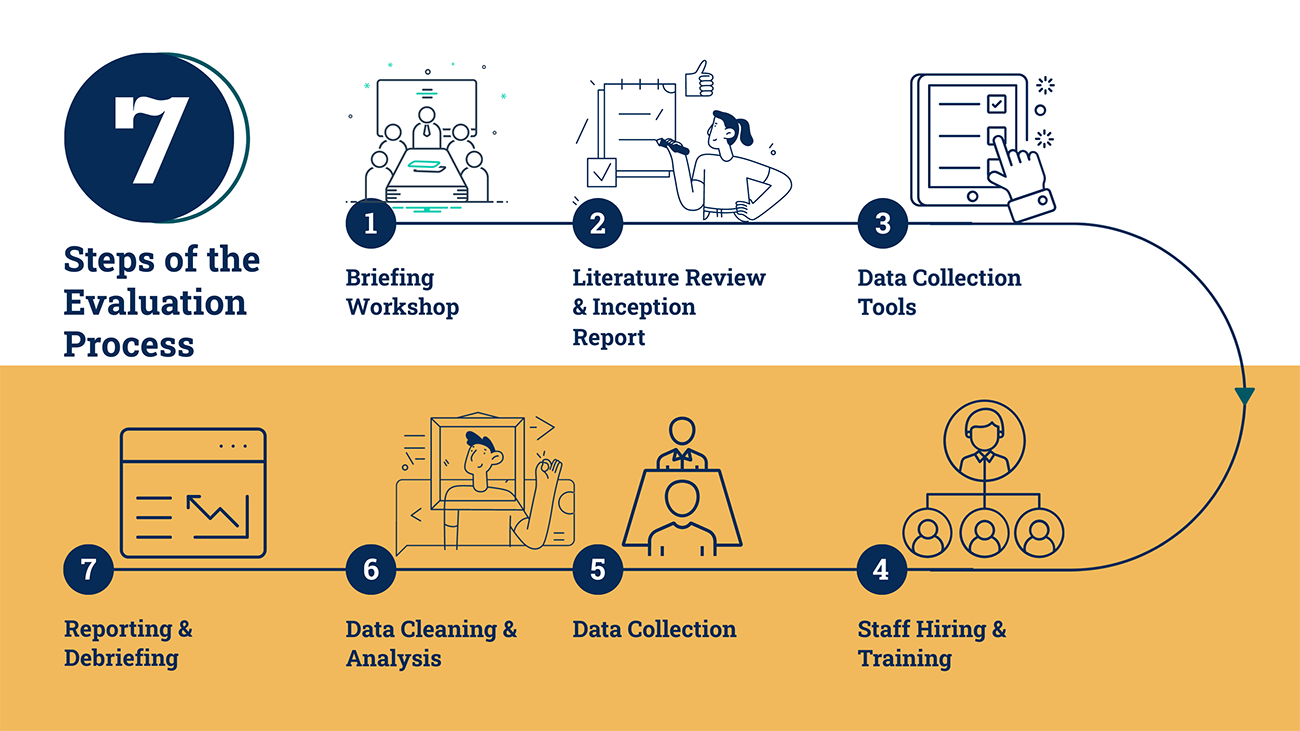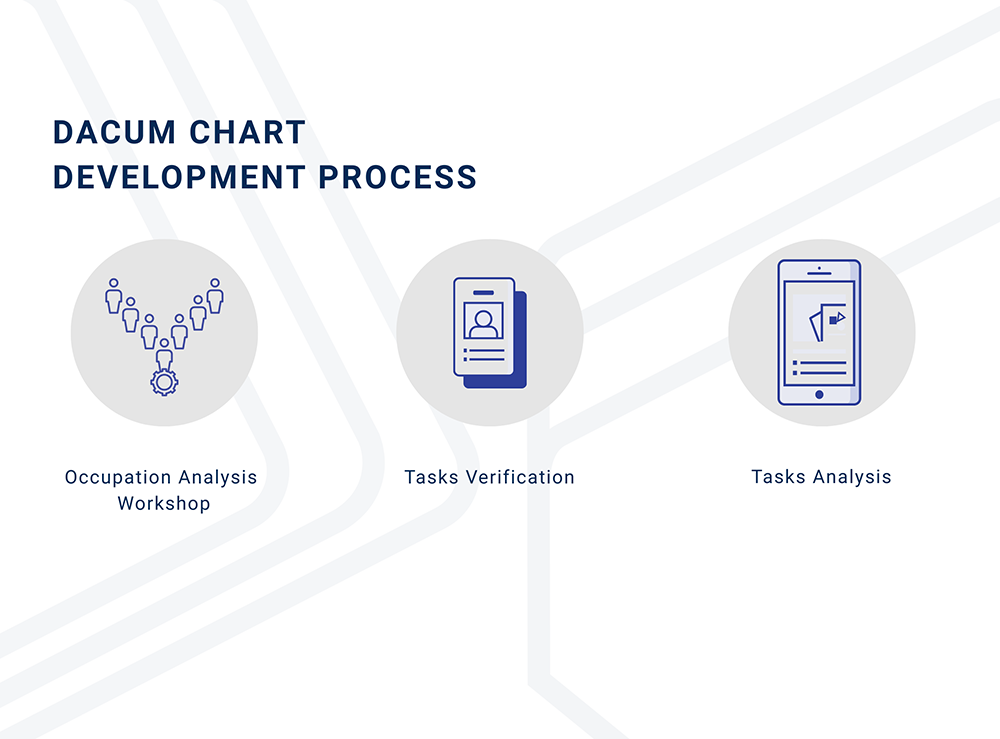Research/Evaluation Approach
ARM Consulting employs a robust research and evaluation methodology comprised of eight steps, which duly consider gender and human rights principles. Its approach includes inputs and testimony from a wide range of stakeholders to be triangulated with observations from the field. This participatory technique uses a diverse set of proven primary data collection tools based on qualitative and quantitative approaches. ARM Consulting uses a wide range of data collection tools while conducting research studies and project evaluations, including Desk Reviews, In-depth semi-structured interviews, Key Informant Interviews, Focus Group Discussions, Outcome Mapping, Outcome Harvesting Workshops, and direct observations. Data collected through these tools enables ARM Consulting to conduct sense-making evaluations for international development agencies.


Capacity Development Approach
ARM Consulting adopts a 5-step capacity development model consisting of training analysis, design and curriculum development, implementation, evaluation, and reporting.
To better understand the expectations of the participants from the training and to tailor the training to meet their needs and interests, ARM Consulting conducts a rapid need assessment in person or through online platforms with a representative sample of the participants. The assessment helps us to get insight into the conceptual and language skills of the expected participants. Subsequently, the Center of Curriculum Development (CCD) at ARM Consulting, headed by an international development expert, develops a context-tailored training curriculum based on the findings of the need assessment.
The training approach employed is participatory and focused on problem-solving. This approach implies that the participants will not just sit and listen to the trainers and watch slides during the training, but instead, they will be encouraged to participate actively in training through activities such as pair and group discussions, games, simulations, role plays, brainstorming, and group work. The training will be participants centered rather than trainer centered.
In addition, there would be a pre-test and a post-test to gauge the level of participants understanding and the immediate effectiveness of the training. The participants would also be required to fill out training evaluation forms at the end of the workshop. The participants will have the opportunity to assess the training’s content, methodology, and delivery. The pre and post-test results will be analyzed to determine the immediate outcome of the training program. The training evaluation results will be included in the training report, along with a set of recommendations
DACUM Approach
ARM Consulting has extensive experience using the Developing a Curriculum (DACUM) approach, particularly in the TVET sector of Afghanistan. It develops DACUM Chart for a trade or profession in three stages. (i) Occupational Analysis Workshop, (ii) Task Verification, and (iii) Task Analysis.
To identify key occupations related to a profession, a series of workshops are held consisting of panel discussions and brainstorming sessions among the participants. The workshops result in the development of DACUM Charts, which identify duties and map tasks for each identified duty. Once the draft DACUM charts are developed, they are shared with subject matter experts to verify the duties and tasks identified during the workshops. Subsequently, a Curriculum Development Expert is tasked to hold in-depth discussions with sectorial stakeholders to collect information on different aspects of tasks and duties related to household chores, such as; steps, performance standards, required tools/equipment, knowledge, attitudes, safety considerations, decision-making patterns, and others.

